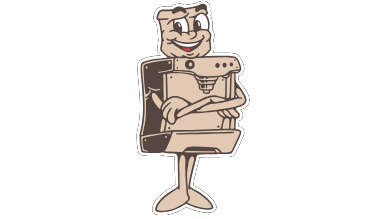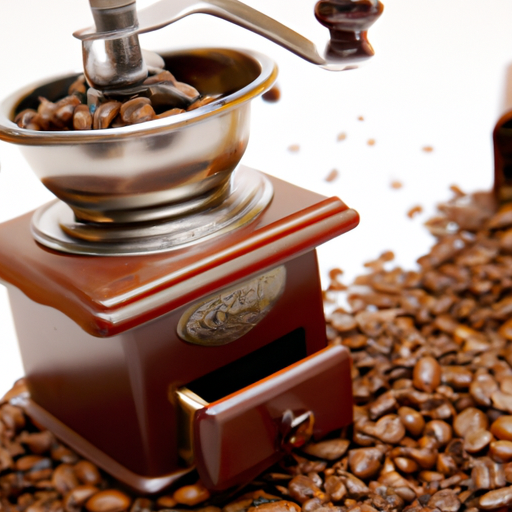Did you know that brewing coffee at high altitudes can be a little challenging? The change in air pressure affects the brewing process, resulting in less flavorful and weaker coffee. But don’t worry, we’ve got you covered! In this article, we’ll share seven expert tips to help you brew the perfect cup of coffee, even at high altitudes. So whether you’re camping in the mountains or living in a high-altitude area, these simple tips will ensure that you never have to compromise on the taste and aroma of your morning brew. Get ready to elevate your coffee game!
Choosing the Right Coffee Beans
When it comes to making a great cup of coffee, choosing the right beans is crucial. Arabica beans are often the preferred choice for their superior quality and flavor. These beans tend to have a more delicate and complex taste compared to their counterpart, Robusta beans. Arabica beans also have a lower caffeine content, making them a great option for those who are sensitive to caffeine. Whether you prefer a light, medium, or dark roast, you can find Arabica beans that suit your taste preferences.
Grinding the Coffee Beans
Once you’ve chosen the perfect beans, it’s time to grind them. Using a burr grinder is highly recommended as it allows for a more uniform grind size. This is important because the size of the grind affects the extraction process and ultimately the flavor of the coffee. Grind your beans just before brewing to ensure maximum freshness and flavor. The aroma and taste of freshly ground coffee are unmatched, so investing in a good burr grinder is definitely worth it. For most brewing methods, a medium-coarse grind works best, but feel free to experiment and adjust to your liking.
Water Temperature
The temperature of the water used for brewing coffee is another crucial factor that affects the flavor. It’s recommended to boil water at a lower temperature than boiling point, around 195°F to 205°F (90°C to 96°C). Using a thermometer to measure the temperature accurately is highly recommended to achieve consistency. Avoid boiling the water for too long, as it can lead to over-extraction and bitterness. Maintaining the optimal water temperature throughout the brewing process ensures that you extract the best flavors from your coffee beans.
Brewing Method
There are various brewing methods to choose from, each offering a unique flavor profile. The French press is known for its rich and full-bodied coffee, as it allows the coffee grounds to steep for a longer period of time. The pour-over method gives you more control over the brewing process and results in a clean and crisp cup of coffee. If convenience is a priority, a drip coffee maker is a great option as it automates the brewing process. Experiment with different brewing methods to find the one that suits your taste preferences and brewing style.
Adjusting Coffee to Water Ratio
The ratio of coffee to water plays a significant role in determining the strength and flavor of your brew. Experiment with different ratios until you find the perfect balance. If you prefer a stronger cup of coffee, increase the amount of coffee grounds. On the other hand, if you prefer a milder cup, decrease the amount of coffee grounds. It’s important to maintain a proper coffee to water ratio to avoid over or under-extraction. Finding the right balance will ensure a consistently delicious cup of coffee every time.
Brewing Time
The brewing time is another important factor that affects the flavor of your coffee. For a stronger and bolder cup, try extending the steeping time. This allows for a more thorough extraction of the coffee’s flavor compounds. However, if you’re using lighter roasts, a shorter brewing time may be preferable to prevent over-extraction and maintain the delicate flavors. Adjust the brewing time according to your taste preferences and the type of coffee beans you’re using. Remember, the perfect cup of coffee can be achieved through experimentation and finding what works best for you.
Air Pressure Effects
If you find yourself brewing coffee at higher elevations, it’s important to understand the impact of reduced air pressure on the brewing process. Lower air pressure can affect the extraction rate and flavors of the coffee. To compensate for this, you may need to alter your brewing process. Experiment with adjusting the grind size or brewing time to achieve the desired flavors. It may take some trial and error to find the right adjustments, but the result will be a delicious cup of coffee, no matter the altitude.
Storage Considerations
Properly storing your coffee beans is essential to preserve their freshness and flavor. It’s important to keep them in airtight containers to protect them from exposure to light, heat, and moisture. Oxygen, light, and humidity can degrade the quality of your coffee beans over time, leading to a less flavorful cup of coffee. Additionally, it’s important to only purchase the amount of coffee beans that you can consume within a reasonable timeframe. This helps ensure that your coffee is always fresh and at its best.
Taste Testing and Modifications
Regularly tasting and adjusting your brewing variables is an essential part of perfecting your coffee-making skills. Every coffee bean and brewing method have their own nuances, and experimenting with different techniques and flavors is the best way to discover your own personal preferences. Don’t be afraid to try new brewing methods, adjust your ratios, and explore different flavors. Additionally, seeking feedback from fellow coffee enthusiasts can provide valuable insights and help you refine your brewing techniques.
Equipment Maintenance
To ensure that your coffee-making equipment continues to produce the best-tasting coffee, regular maintenance is necessary. Cleaning your equipment, such as your grinder and brewing devices, is essential to remove any residual oils and coffee particles that can affect the flavor of your brew. Descaling your coffee machines, particularly if you have hard water, helps remove mineral deposits that can build up over time. It’s also important to replace any worn-out parts to maintain optimal performance. By properly maintaining your equipment, you’ll enjoy consistent and delicious cups of coffee for years to come.
In conclusion, brewing a great cup of coffee involves a combination of factors, from choosing the right beans to properly storing and maintaining your equipment. By considering the type of coffee beans, adjusting your grind size and coffee to water ratio, and experimenting with different brewing methods and variables, you can create a cup of coffee that suits your taste preferences perfectly. Don’t be afraid to try new techniques, seek feedback from others, and most importantly, enjoy the process of brewing your own delicious cup of coffee.


